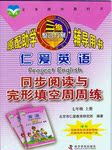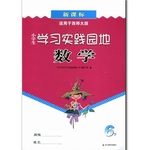题目内容
 When I arrived in Beijing nearly three months ago, the unexpected happened.
When I arrived in Beijing nearly three months ago, the unexpected happened.
Before coming to China's mainland, I had lived in the Asia-Pacific for over three years—South Korea, the Philippines and Taiwan.
When I left Taipei in 2010 for graduate school at home in Canada, I was extremely sad: I
wasn't ready to leave Asia. The day I landed at Montreal's Trudeau Airport, I was determined to go back. Would it be in a year after I finished my program? Two? Surely no longer than three. Eventually, no doubt.
I took a 12-month master's in journalism at Western University (then called the University of Western Ontario), an excellent school in London, Ontario.
Throughout the school year, my body was in Canada; my mind clearly wasn't. After graduating, I worked as a researcher and journalist in Quebec City and Montreal. I was lucky to land a job right out of school. Even though I was back in Canada for over a year, I remained unhappy. I spent much of my time devouring news from China and studying Chinese.
After a year of work, I bought a ticket to Beijing. Finally, after two long years, I would return to Asia. I couldn't be happier. I was thrilled. That is, however, until I arrived.
After embracing the city the first few days—sightseeing and meeting friends--I became a hermit (隐士 ), spending a fair part of each day in the hotel. I didn't want to go out. I didn't want to go out there. I felt sad. I had little energy. What was happening?
I speak Chinese at a low-intermediate (中下)level. My reading ability is pretty good, so
street signs and restaurant menus aren't always a barrier. I've been to China before and lived in the area for years. So what's the problem?
Was I in culture shock? How could this be? Not me. Yes5 me.
I spent my days reading up on local news back home. Quebec--my home province-was in the process of an election campaign.
64. Why was the writer extremely sad when he left for Canada?
A. He missed his life in Asia.
B. He would leave his hometown.
C. It would be hard for him to return to Asia.
D. It would be difficult for him to find a job in Canada.
65. What does the underlined word "devouring" mean in the passage? A. Spreading blindly. B. Reading eagerly.
C. Announcing unexpectedly. D. Leaking intentionally.
66.Before he returned to Asia, the writer_____
A. knew little about China
B. had worked in Canada for one year
C. had studied in Canada for nearly two years
D. couldn't understand restaurant menus in Chinese
67. What would be the best title for the passage?
A. A Colorful Life. B. A Big Decision.
C. A Tough Adjustment D. A Language Barrier.
ABBC

 仁爱英语同步练习册系列答案
仁爱英语同步练习册系列答案 学习实践园地系列答案
学习实践园地系列答案